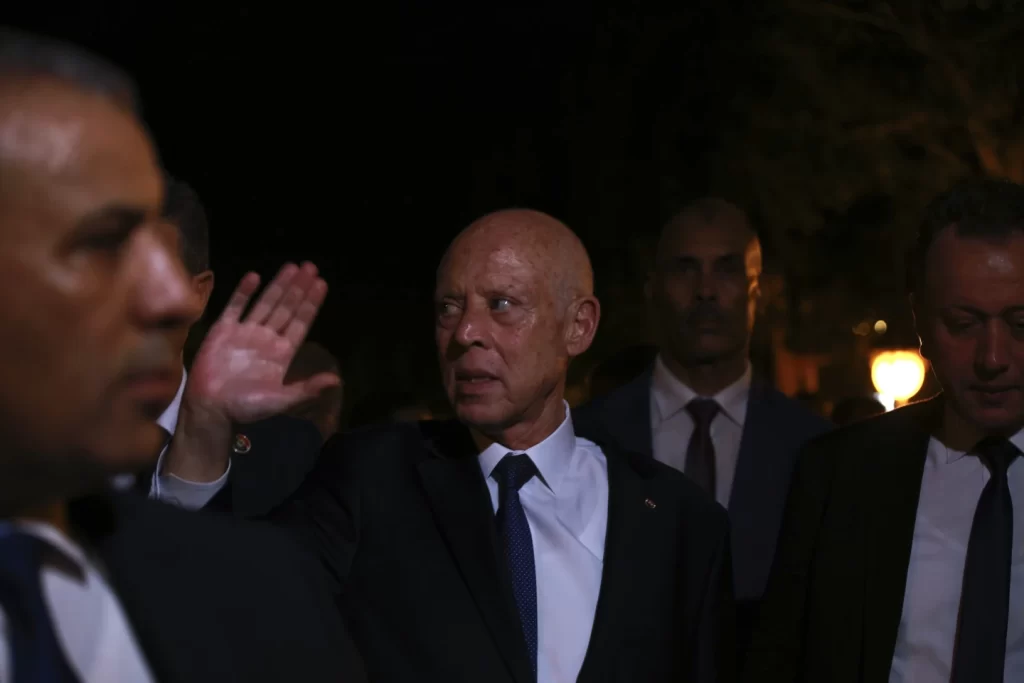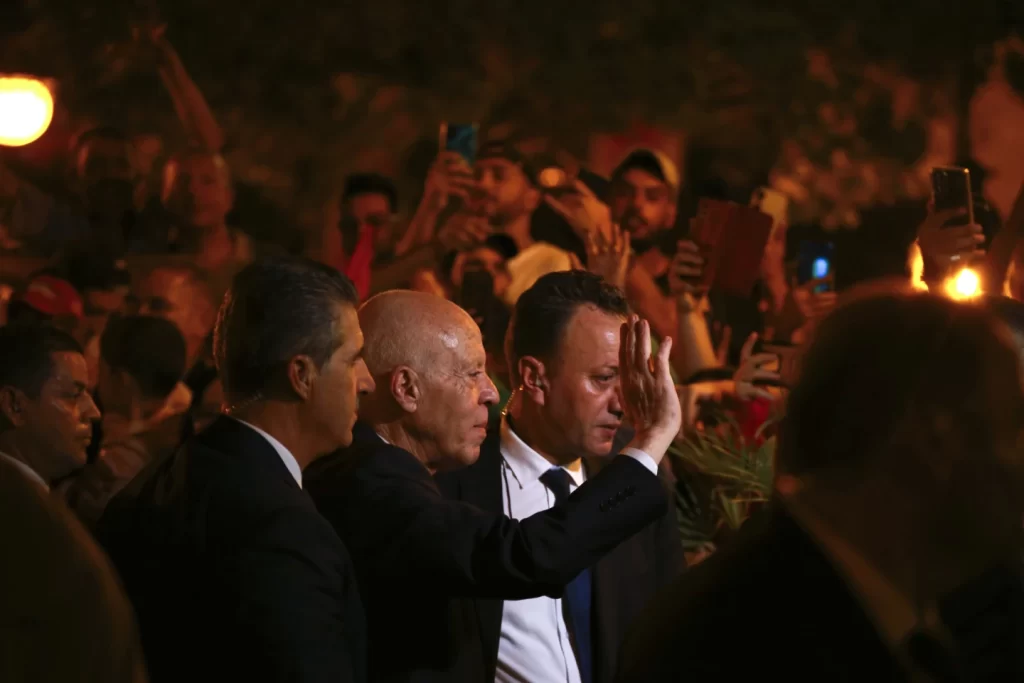President Kais Saied of Tunisia secured a second term in a landslide victory, winning 90.7% of the vote in an election marked by opposition boycotts and a crackdown on dissent, the country’s electoral authority announced Monday.

The Independent High Authority for Elections reported that Saied’s closest challenger, imprisoned businessman Ayachi Zammel, received 7.4% of the votes. Zammel spent most of the campaign season in jail facing multiple charges related to election crimes.
“This result reflects the participation of Saied’s supporters while the majority of his detractors chose to boycott,” said political analyst Noureddine Mbarki. “It raises questions about the state of Tunisia’s democracy.”
The election, Tunisia’s third since the 2011 Arab Spring that ousted longtime dictator Zine El Abidine Ben Ali, took place against a backdrop of widespread arrests targeting opposition figures, journalists, activists, and attorneys.

Critics argue that Saied, who came to power in 2019 as a political outsider, has steadily eroded democratic gains made since the revolution. In 2021, he suspended parliament and dismissed the prime minister, later rewriting the constitution to consolidate his power.
“Saied’s overwhelming victory masks deep divisions within Tunisian society,” said Dr. Sarah Yerkes, a senior fellow at the Carnegie Endowment for International Peace. “The low turnout and opposition boycott signal growing disillusionment with the political process.”
International observers have expressed concern over the fairness of the election process, with many pointing to the jailing of key opposition figures as a significant blow to Tunisia’s democratic aspirations.

As Saied begins his second term, he faces the challenge of addressing Tunisia’s economic woes and reconciling with a deeply divided populace, all while navigating international scrutiny over his governance style.
The election outcome marks a stark contrast to the hopes for democracy that emerged from Tunisia’s Arab Spring protests, which called for “bread, freedom, and dignity.” As the birthplace of those region-wide uprisings, Tunisia’s political trajectory continues to be closely watched by both regional and global observers.
Source: apnews.com



